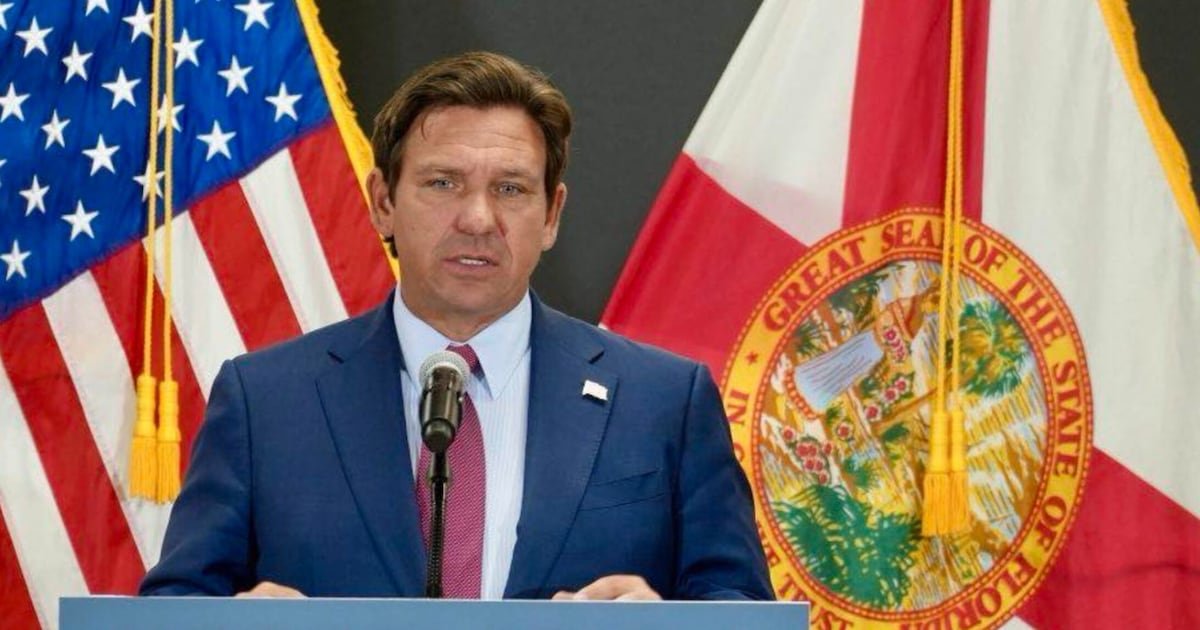The Rise of Ron DeSantis
Ron DeSantis emerged as a significant figure in American politics, particularly gaining prominence during his tenure as the Governor of Florida. His early political career was marked by a strong ideological commitment to conservative principles, appealing to a substantial base within the Republican Party. DeSantis’s rise can be primarily attributed to his assertive stance against COVID-19 restrictions. In a time when many states enforced strict lockdowns, DeSantis championed a different approach, prioritizing individual freedoms and economic recovery over stringent health mandates. This decision garnered considerable media attention and resonated with Republican constituents who valued personal liberties.
During the pandemic, DeSantis implemented policies that kept Florida’s schools open and resisted calls to mandate masks or impose vaccine passports. His hands-off strategy positioned him as a champion of the right, contrasting sharply with the more cautious measures adopted by other states led by Democratic governors. This approach not only attracted national attention but also solidified his reputation among staunch conservatives who were frustrated with perceived government overreach. Furthermore, DeSantis’s ability to navigate the complexities of public health while promoting economic vitality helped him emerge as a formidable political figure.
Social media played a pivotal role in bolstering Ron DeSantis’s political image. Leveraging platforms like Twitter and Facebook, he connected directly with supporters, presenting himself as a bold, uncompromising leader. His straightforward communication style and strategic use of viral content allowed him to cultivate a loyal following and positioned him as a potential contender for the Republican nomination in the 2024 presidential race. As he embraced a prominent role on the national stage, DeSantis’s early decisions and clear messaging attracted the attention of potential donors and influential GOP figures. This confluence of events laid the groundwork for what many perceived as a promising political trajectory.
The Failed Presidential Campaign

Ron DeSantis’s presidential campaign became a case study in the pitfalls of modern political strategy. Allocating around $200 million, it initially appeared that DeSantis was well-equipped to challenge former President Donald Trump for the Republican nomination. However, the outcome starkly contrasted with the immense financial investment he made, highlighting significant flaws in his approach.
A major factor in the campaign’s failure was DeSantis’s reliance on aggressive messaging that aimed to galvanize a specific base rather than build a coalition appealing to a broader electorate. The focus on hot-button issues and internet trends, including aggressive attacks and tactical propaganda, often overshadowed substantive policy discussions. While this strategy might have energized his core supporters, it ultimately alienated moderate voters and independents who were not captivated by his combative style. As a result, DeSantis struggled to expand his appeal beyond a narrow group.
Additionally, DeSantis’s campaign demonstrated challenges in the face of Trump’s enduring influence on the Republican voter base. Instead of positioning himself as a distinct alternative, DeSantis increasingly mirrored Trump’s rhetoric and controversial policies. This decision contributed to an image of him as a second-rate imitation, failing to articulate a vision that resonated with the electorate seeking authentic leadership. Furthermore, his struggles with fundraising dynamics in a crowded field inhibited his ability to present a coherent, substantive platform, exacerbating his political vulnerability.
In the end, Ron DeSantis’s failed presidential campaign serves as a cautionary tale. The combination of overreliance on digital-savvy tactics and inadequate grassroots engagement created barriers that ultimately hindered his quest for the presidency. These elements together laid the groundwork for his downfall, showing how even well-funded campaigns can falter without genuine connection to the electorate. Understanding these missteps is essential for those analyzing his political trajectory and future prospects.
Controversies and Scandals
Throughout his political career, Ron DeSantis has faced numerous controversies and scandals that have significantly impacted his reputation as both governor of Florida and a presidential candidate. One of the most significant allegations was the investigation into his purported embezzlement of Medicaid funds. This scrutiny raised questions about fiscal integrity amidst mounting concerns over the management of state funds, ultimately leading to a shadow of doubt that hung over his administration.
Another significant point of contention has been DeSantis’ handling of COVID-19 data during the pandemic. Critics argue that his administration displayed a lack of transparency, particularly with the reporting of case numbers and vaccination statistics. This perceived opacity in data sharing not only frustrated public health officials but also stoked public mistrust. The handling of such critical information became a focal point in the accusations leveled against him, affecting how both Floridians and potential voters assess his competency as a leader.
Additionally, DeSantis’ ties to Israel have drawn mixed reactions. While support for Israel is often a unifying issue among conservative voters, his approach to relations with the Israeli government has sometimes blurred the lines of his accountability. Critics contend that this relationship has overshadowed pressing domestic issues, diluting his focus on the needs of Floridians. Voters increasingly framed these controversies as indicators of his broader political priorities, which led to a more skeptical view of his governorship.
Collectively, these controversies have contributed to a complex narrative surrounding DeSantis. As he continued his political ambitions, the implications of these scandals likely played a role in shaping voter opinions, leading to questions about his viability as a candidate. This scrutiny has the potential to hinder his prospects and reshape the trajectory of his political career.
Lessons from DeSantis’s Political Journey
Ron DeSantis’s political career serves as a compelling case study for current and future political candidates, especially within the Republican Party. His rise to prominence, fueled by a combination of strong messaging and the efficient use of social media, illustrates the potential of viral content to engage and mobilize supporters. However, his subsequent fall from grace highlights critical lessons regarding the importance of transparency and authenticity in political leadership. Candidates must recognize that while appealing content can initially capture attention, maintaining trust with the electorate is paramount.
Another lesson drawn from DeSantis’s journey is the need for addressing genuine issues that resonate with voters. His administration’s focus on cultural narratives and divisive topics, while gaining initial traction, ultimately detracted from substantive policy discussions. Future leaders should prioritize connecting with citizens on pressing issues such as healthcare, economic stability, and education. A strategy anchored in real solutions, rather than sensationalism, is likely to foster more sustainable support among constituents.
The implications of DeSantis’s views on race also warrant examination. His political rhetoric, perceived by many as divisive, reflects a broader trend among candidates to engage in identity politics. This approach can alienate certain voter demographics, counteracting any potential gains from a focused base of support. For Republican contenders, careful navigation around sensitive societal issues is crucial, as missteps may evoke backlash and undermine broader electoral aspirations.
Looking ahead, the lessons from Ron DeSantis’s political journey underscore the vital need for evolving leadership styles in American politics. Candidates aspiring to connect with the electorate should embrace a balanced approach, valuing transparency, addressing real concerns, and fostering inclusivity. By doing so, they may better position themselves for lasting success while responding to an increasingly discerning electorate.






